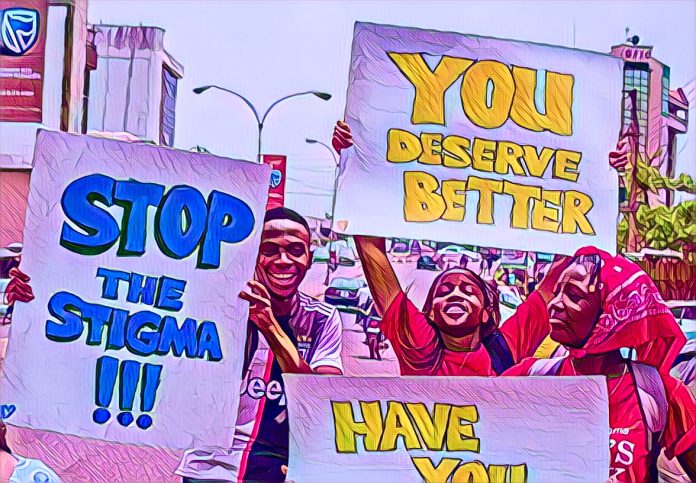KEY POINTS
- 20% of Nigerians face mental health challenges, including depression and anxiety.
- Misconceptions about mental illness drive stigma and hinder treatment.
- Legal reforms and public campaigns can combat Nigeria’s mental health crisis.
Mental health is an essential component of overall well-being, yet it remains one of the most neglected aspects of healthcare globally. In Nigeria, mental health issues affect millions, but stigma and inadequate infrastructure leave many untreated. Addressing these challenges is not just a health priority—it’s a societal imperative.
The state of mental health in Nigeria
Nigeria is facing a severe mental health crisis, with millions of its citizens struggling with various mental illnesses. According to the World Health Organization (WHO), an alarming 20% of Nigerians, approximately 40 million people, are affected by mental health issues.
Among the most common conditions are depression and anxiety disorders, which have become increasingly prevalent in recent years. In 2017 alone, nearly 7 million Nigerians, or 3.9% of the population, were reported to have depressive disorders, while 4.9 million (2.7%) struggled with anxiety disorders.
Adding to the crisis, substance abuse disorders, bipolar disorder, schizophrenia, and personality disorders significantly affect the country. The widespread nature of these illnesses highlights the urgent need for comprehensive mental health interventions and better access to care for affected individuals.
Despite this high prevalence, Nigeria has fewer than 250 psychiatrists for a population of over 200 million, as reported by the National Institutes of Health. Many facilities are located in urban areas, leaving rural communities underserved.
Further compounding the issue is the limited budget allocation for mental health. According to a report by the World Health Organization, about 3.3% of the health budget of the central government goes to mental health, resulting in a lack of trained professionals and essential medications.
Cultural and social perceptions
In many Nigerian communities, mental health is shrouded in misconceptions. A 2022 study published by the National Library of Medicine revealed that the majority of respondents attributed mental illnesses to supernatural causes such as witchcraft or curses. This belief system often drives families to seek spiritual interventions rather than medical treatment.
Consequences of stigma
Stigma creates a vicious cycle of neglect and exclusion. For individuals, it means reluctance to seek help, worsening symptoms, and social isolation. According to a 2015 report by the Research Gate, many Nigerians with mental health conditions lose their jobs due to discrimination.
Families bear a heavy burden, often becoming primary caregivers without adequate resources or support. The broader economy suffers too. A report by the National Library of Medicine estimates that untreated mental illnesses cost Nigeria over $166.2 million annually in lost productivity.
Efforts to improve mental health awareness
The Nigerian government has taken steps, albeit slow ones, to address the crisis. In January 2023, Nigeria made a significant stride in addressing its mental health crisis by enacting the National Mental Health Act, 2021. This marked the country’s first comprehensive legislation on mental health, replacing the outdated Lunacy Act of 1958, which had been in place for over six decades.
The new law aims to protect the rights of individuals with mental health conditions and integrate mental health into primary care services. However, implementation remains a challenge due to funding gaps.
Non-governmental organizations have been instrumental in bridging these gaps. Organizations like the Mentally Aware Nigeria Initiative (MANI) have led campaigns to educate the public and provide free counselling services. For example, MANI’s “Not Every Wound is Visible” campaign in 2022 reached over 1 million people through social media, challenging stereotypes about mental health.
Celebrities like actress Funke Akindele have also played pivotal roles in normalizing conversations about mental health. Akindele’s public acknowledgement of her struggles with anxiety has inspired many to seek help.
Recommendations and solutions
To tackle Nigeria’s mental health crisis, several steps are necessary:
- Increased Funding and Infrastructure: The government must allocate at least 15% of the health budget to mental health. Countries like Rwanda have demonstrated the effectiveness of such investments by significantly expanding their mental health services.
- Public Education Campaigns: Large-scale awareness campaigns that address cultural misconceptions are critical.
- Community and Peer Support: Encouraging grassroots initiatives, such as peer counseling groups, can provide accessible and culturally sensitive support to individuals.
- Legal Protections: Ensuring the enforcement of the Mental Health Act will protect individuals from discrimination and inhumane practices.
Conclusion
Mental health awareness and stigma in Nigeria represent a complex but solvable challenge. By investing in education, infrastructure, and inclusive policies, Nigeria can create a society where individuals feel empowered to seek help without fear of judgment. Reducing stigma is not just a health goal—it’s a step toward a more compassionate and productive nation.
It’s time for the government, organizations, and individuals to unite in breaking the silence. Together, we can build a Nigeria where mental health is prioritized, and no one is left behind.



